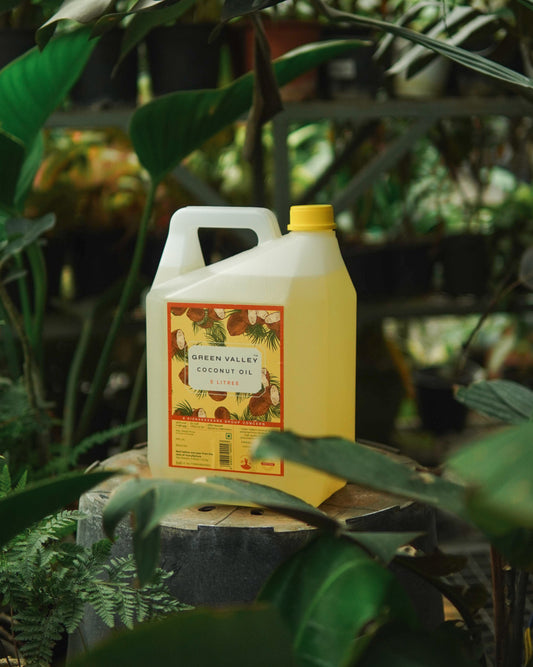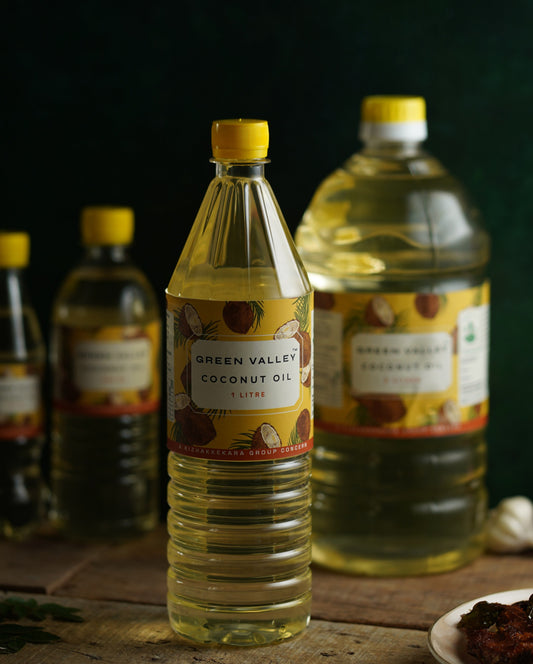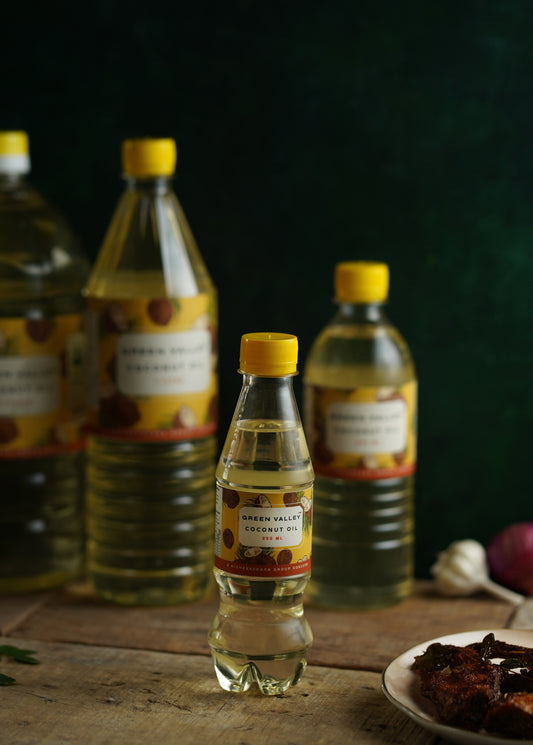Or is it just your weighing scale gaslighting you again?
Ah, coconut oil. The darling of the wellness world, the star of your skincare routine, the smooth operator in your morning coffee. It's been praised as a miracle oil, curing everything from dry knees to broken hearts (okay, maybe not hearts, but close enough).
But amid all the hype, one slightly awkward question has been quietly brewing:
“Can coconut oil make you gain weight?”
Because sure, it's natural. Sure, it's healthy. But so are avocados, and we all know that five guacamoles later, things get real in the jeans department.
Let’s dissect this — spoon by spoon.
First Things First: What is Coconut Oil?
Coconut oil is a saturated fat extracted from coconuts. When labelled virgin coconut oil, it means the oil has been extracted without the use of chemicals or high heat, preserving its nutrients and that delicious nutty aroma.
It’s mostly made up of medium-chain triglycerides (MCTs), particularly lauric acid, which has been linked to energy production, antimicrobial benefits, and the ability to cause arguments in Facebook health groups.
But Wait… Isn’t Fat Supposed to Be the Enemy?
Not anymore. We’ve evolved.
Fat used to be the villain in every low-fat, cardboard-tasting, 1990s diet ad. But today, we know that healthy fats — like those in virgin coconut oil — are essential for hormone function, brain health, and satiety.
So if fat isn’t bad, then what's the fuss?
Here's the kicker: all fat, even the good kind, is calorie-dense. One tablespoon of coconut oil contains around 120 calories. That’s roughly the same as eating a slice of toast, a banana, or — if you’re cheeky — three Oreos.
Now imagine adding two tablespoons of coconut oil to your smoothie, slathering more on your veggies, and stirring some into your coffee. That’s an extra 300+ calories a day, without you even noticing.
So yes, if you consume too much coconut oil, and you’re not burning those extra calories, it can lead to weight gain.
It’s Not That Coconut Oil Wants You to Gain Weight
It’s not personal. It’s thermodynamics.
Weight gain happens when you consume more calories than you burn — whether those calories come from deep-fried doughnuts or organic, virgin, cold-pressed, ethically-sourced coconut oil hand-harvested by monks.
Coconut oil doesn’t bypass the laws of physics.
Sure, MCTs in coconut oil are more likely to be used for energy than stored as fat — but only if you’re not already eating more than your body needs.
But There’s Still Good News
Here’s why people love coconut oil, even in weight management:
-
It Keeps You Full Longer
The fats in coconut oil digest slowly, keeping you satisfied and reducing your chances of eating a second lunch at 11:30 a.m. -
It May Increase Metabolism Slightly
MCTs can increase energy expenditure (calorie burn) by up to 5% in some studies. It's not a license to go wild, but it's a nice metabolic bump. -
Supports Ketosis
If you're on a ketogenic or low-carb diet, coconut oil helps your body produce ketones, which burn fat for energy instead of carbs. That’s why it’s a keto favourite -
Helps You Cook Smart
Coconut oil has a high smoke point and is stable at high heat, making it a healthier alternative to refined vegetable oils when stir-frying or roasting.
When Coconut Oil Doesn’t Help Your Goals
- You add it on top of a diet already high in calories
- You treat it like a detox potion instead of a food
- You think “natural = unlimited” (spoiler: it doesn’t)
-
You ignore the rest of your diet and lifestyle
Think of coconut oil like avocado. Great in moderation. Problematic in bulk. Tasty either way.
So What’s the Verdict?
Let’s keep it brutally honest:
Coconut oil will not make you fat — unless you eat too much of it.
Just like literally everything else in the universe.
Use it:
- Intentionally - 1–2 tablespoons per day is a great place to start.
- As a swap, not an addition (e.g., use it instead of butter or other oils.
-
In a balanced diet, paired with movement and meals that include protein, fibre, and, yes, carbs too.
And no, slathering it on your toast doesn’t give you six-pack abs. But it does give you a deliciously satisfying meal that just might keep you from snacking on random junk later.








